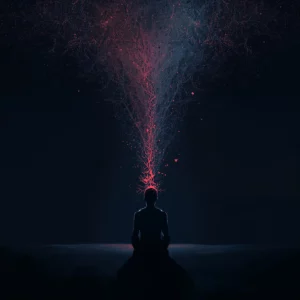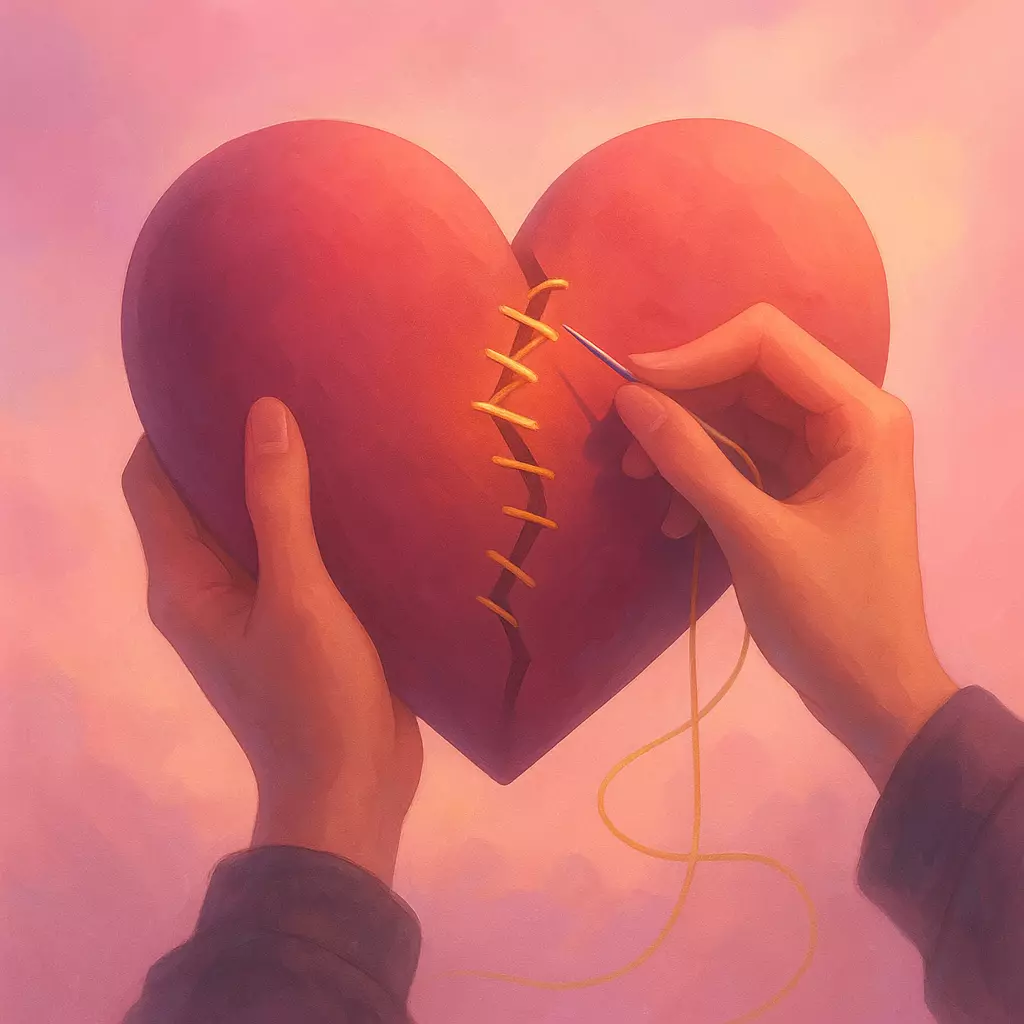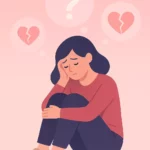Table of Contents
You keep replaying the last conversation in your mind—those final words (or lack of them), the abrupt silence, the way the story just… stopped. You tell yourself, “If I could just understand why, then I could move on.” But the more you search for answers, the deeper you sink into the ache. It’s maddening how badly we want closure after a breakup. Why does the need feel so primal, so unrelenting?
The truth is, it is primal. Beneath the surface of heartbreak lies a brain and body fighting to make sense of loss. Let’s explore why closure after a breakup feels impossible—and why the craving for it runs so deep.
The Brain’s Obsession With Closure After a Breakup
Our minds are wired for patterns and stories. When a relationship ends abruptly or without clarity, it creates what psychologists call “cognitive closure.” It’s like leaving a mystery novel unfinished—the brain keeps turning pages that aren’t there.
Webster and Kruglanski (1994) found that people with a high need for closure feel intense discomfort in uncertainty. After a breakup, this drive kicks into overdrive:
- We scan old texts for hidden meanings.
- Replay conversations in our heads.
- Even imagine impossible confrontations where we finally get “the truth.”
But here’s the paradox: the more we chase external closure, the more power we give to the absence of it.


Why Breakups Hurt So Much (Science of Heartbreak & Healing)
Let’s examine breakups in: Biology of love & loss, Attachment styles, Rejection psychology, Closure, Rumination, Grief
Tap here to read more →Why Lack of Closure Feels Like Physical Pain
It’s not just in your head—heartbreak hurts in your body.
Neuroscientists Eisenberger and Lieberman (2004) discovered that social rejection lights up the same regions in the brain that process physical pain. The dorsal anterior cingulate cortex, your neural alarm system, doesn’t distinguish between a broken bone and a broken heart.
When closure after a breakup is missing, the wound stays open. The brain keeps pinging these pain circuits, as if asking: “Are we safe yet? Is it over?” The ambiguity becomes a low-grade injury that flares up every time you think about what was left unsaid.

Finding Healing Without Their Answers
So what if you never get the apology, the explanation, the neat little bow on the end of your love story? Can you still heal? The science says yes—and it starts within.
Studies on attachment and separation (Love & Curtis, 2023) show that the brain’s dopamine-driven reward system begins to recalibrate with time and distance. Those powerful surges tied to your ex quiet down as your neural circuits adapt.
Internal closure—creating your own narrative, finding meaning in the loss, deciding it’s enough even without their words—activates the same emotional recovery systems as external closure.
It’s slower, yes. But it’s also the only closure you can control.
Perhaps the hardest truth is this: closure after a breakup isn’t something they give you. It’s something you grow into. It comes in whispers, not grand finales—in the moment you stop refreshing your inbox, the first night you sleep through without dreams of them, the day you realize the story doesn’t need an epilogue to end.
Your heart is learning to write a new chapter. And in time, that will be enough.
FAQ
Q1. Why do I feel like I need closure after a breakup?
The brain craves certainty, and breakups often leave unanswered questions. This triggers a psychological discomfort called ‘need for closure,’ where your mind keeps replaying events to make sense of the loss.
Q2. Is it possible to heal without getting closure from my ex?
Yes, you can heal even without external closure. Over time, your brain’s reward system adjusts, and creating your own narrative can help you find internal closure.
Q3. Why does the lack of closure make breakups hurt more?
Without clear endings, the brain stays in uncertainty, activating the same neural pathways as physical pain. This overlap makes emotional wounds from ambiguous breakups feel like they never fully heal.
Q4. How do I give myself closure after a breakup?
Self-closure involves accepting unanswered questions, reframing the story in a way that empowers you, and focusing on your healing. Journaling, therapy, and setting new goals can help you let go without needing their explanation.
Scientific Sources
-
Webster, D. M. & Kruglanski, A. W. (1994): Individual differences in need for cognitive closure
Key Finding: Individuals high in need for closure experience intense discomfort when uncertain, driving them to seek firm answers and resist ambiguity.
Why Relevant: Explains why, after a breakup, many people feel compelled to obtain clear reasons or finality to reduce emotional chaos.
https://www.ncbi.nlm.nih.gov/pubmed/7823870 -
Eisenberger, N. I. & Lieberman, M. D. (2004): Why rejection hurts: a common neural alarm system for physical and social pain
Key Finding: Social rejection activates the same brain regions (dorsal anterior cingulate cortex) as physical pain, showing that emotional pain is neurologically real.
Why Relevant: Clarifies why ambiguous breakups (without closure) intensify emotional pain—the brain processes it as real injury.
https://www.ncbi.nlm.nih.gov/pubmed/15016270 -
Love, A. S. & Curtis, N. G. (2023): Love’s Chemistry: How Dopamine Shapes Bonds and Breakups
Key Finding: Dopamine surges in bonded voles subside after separation, suggesting a neurochemical mechanism for emotional recovery post-breakup.
Why Relevant: Offers a neurobiological basis for closure—time and separation can dampen reward circuitry tied to the ex.
https://neurosciencenews.com/dopamine-love-relationships-25450/
- Rewriting the Story: The Transformative Power of Self-Closure

- The Ultimate Guide to Emotional Detachment Without Closure

- Closure After a Breakup: The Shocking Truth Experts Reveal

- The Surprising Psychology of Unanswered Questions After a Breakup

- The Healing Power of a Closure Letter: How to Let Go and Move On

- When They Ghost You: A Powerful Guide to Healing and Finding Closure

- Emotional Closure: The Surprising Truth About Letting Go and Moving On

- The Hidden Science of Closure After a Breakup: Why You Crave It and How to Heal


Leave a Reply